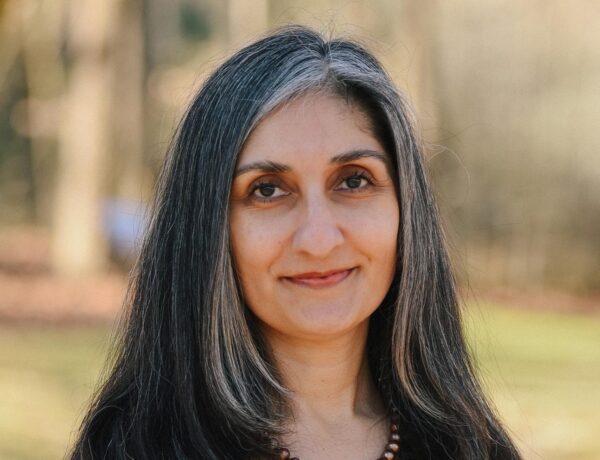Since escaping from university with a pair of degrees in theoretical physics, Kevin Sands has worked as a researcher, a business consultant, a teacher, and a professional poker player. He lives in Ontario, Canada. He is the author of the bestselling The Blackthorn Key and Thieves of Shadow series.
Hi Kevin, welcome to Famous Writing Routines, great to have you here with us today! The Blackthorn Key series has received numerous awards and accolades, and has captured the imaginations of readers around the world. Can you tell us about the inspiration behind the series, and how you came up with the characters and storylines?
I was actually trying to think of new ideas at the time—which rarely works—when it occurred to me that apothecaries were pretty cool: they used potions, and poisons, and secret codes, and those kinds of things. That got me thinking about an apothecary’s apprentice, and a secret people were willing to kill for. I thought that sounded like a pretty good idea, so I started to do some research, and the more I learned, the more I knew I wanted to write this story. The characters then just naturally flowed from the plotting: who do I need to tell this story, and how do I make every scene interesting?
The later books in the series were worked out in much the same way. I would start with a germ of an idea—the Great Plague of London, or a trip to Paris, or children disappearing in the countryside—and from there, I start to do research. And as I’m doing that, pieces of the plot, characters, etc. start falling into place, until the whole story is worked out and I’m ready to start the first draft.
The Blackthorn Key series has been praised for its fast-paced adventure, richly drawn characters, and historical accuracy. How do you balance the need for historical research with the desire to tell an engaging and exciting story?
The key is to remember that you are, in fact, telling a story, and not writing a PhD thesis. So all your reading and research needs to be approached with the story first and foremost in mind. To that end, you need to learn enough about the world your characters will inhabit, but not let yourself go too far down the research rabbit hole. Most of what you learn isn’t going to go into the book, anyway. I’d say about 90-95% of what I read about never gets written into the story—again, because the story is the only thing that matters.
That’s one of the great pitfalls of historical fiction, actually: adding in too much detail. It’s why you’ll occasionally see a five-page description of the interior of a room or something, which causes a lot of readers’ eyes to glaze over. You have to remember that the room doesn’t matter. It’s what happens inside the room that readers will care about. You should definitely aim to include details, but they need to be relevant, like everything else in the book. If it doesn’t advance the plot, advance the character, or get a laugh, it needs to be cut.
For me, this process generally works out to around five weeks of full-time research for each book. That’s more than enough for the purposes of worldbuilding.
You’re based in Toronto, Canada, and your books have a strong sense of place and history. How does your local community and culture influence your writing, and what are some of the challenges and opportunities of writing for a global audience?
I’ve been lucky to meet many good friends in the writing community, and it’s always interesting to talk to them about books and the industry, but when it comes to writing, I’ve mainly just kind of done my own thing. My stories have been influenced mostly by the books I grew up with and loved, especially adventures, mysteries, thrillers, and fantasy, none of which were ever set locally, so it’s not something I tend to consider when writing.
With what I’ve published so far, anything local wouldn’t have an opportunity to show up in my books regardless, since the Blackthorn Key series takes place centuries ago in a different part of the globe, and Thieves of Shadow is a fantasy set on an entirely different world.
But in terms of a global audience, I’m always thinking of that. Mainly, I believe if your books are filled with elements that are universally true: fun, and friendship, and mystery, and so on, well, those are the kinds of things with universal appeal. And readers will connect with that on a basic human level, regardless of where they live or the specific details of your story. So it always makes you happy to hear from someone on the other side of the world who’s connected with your books.
You’ve spoken in the past about the literary rejection you received from an agent, who gushed about your manuscript before ultimately declining to represent you because she felt it was too similar to a recently published book. How did you handle that rejection, and what did you learn from the experience?
I got right back to querying. Which is pretty much the only way to succeed in any sort of creative industry. While it was certainly a feelsbadman.jpg moment, it was also a great reminder that nothing’s guaranteed until you’ve signed on the dotted line.
Rejection is a common experience for many writers, but it can still be difficult to deal with, especially when it comes in the form of a yes-but-no. How do you stay motivated and focused in the face of rejection, and what advice would you give to aspiring writers who are struggling to find their footing in the industry?
You need to embrace failure.
I know that sounds strange. Our society, and in particular our school system, tends to treat failure as some terrible thing to be avoided, but nothing could be further from the truth. You only learn by doing, and pretty much no one succeeds on their first try. (People think they do because the news publicizes those few counterexamples, but those are the exceptions, and most of those stories heavily discount the truth anyway, which is that those writers were usually writing in some form for years before they published a manuscript.)
Anyway, failure is an unavoidable part of this industry. The first manuscript I sent out was rejected by everybody. The second manuscript—The Blackthorn Key—I sent to seventy-five agents. Only nine wanted to read it, only six actually did, and only four offered representation. That’s a 95% failure rate. And it was considered a colossal success!
Beyond that, understand that failures are the things you learn from. If something doesn’t work, there’s a reason for it. If you can figure out what the problems are, then figure out how to fix them, then you’re well on your way to writing solid books. Rejection is just another part of that process. Keep at it—in writing, you only truly fail when you quit.
The publishing industry is constantly evolving, with new trends and themes emerging all the time. How do you stay on top of these changes, and what steps do you take to ensure that your work is relevant and resonant with readers?
I don’t really shape what I do based on writing trends, because there’s not much I’d be able to do about them, regardless. I just write the sort of things I like, and the sort of things I think readers will like, and hope that my books will find an audience. Chasing trends is like trying to catch lightning in a bottle, anyway: while there are always writers who will win that jackpot, most books will just lie forgotten. Even worse, your stories will have a very short shelf life, because when the trends change—as they always do—no one will care much about what you’ve written. Better to try to write stories that are timeless, which will give you a chance at a lifelong career.
Similarly, “relevance” isn’t something that’s particularly important to me as a reader or a writer. It’s almost the opposite: I’d much rather explore some other world, or read a story set in some field I know nothing about. (As Groucho Marx once quipped, I’ve heard everything I’ve had to say before, and I’m in no mood to listen to me again.) Basically, I’m an entertainer, and I want to be entertained, so I don’t consider current events or anything like that when creating stories. Anything that gets in the way of entertainment is anathema to me.
Resonance, on the other hand, is an essential part of storytelling, and that comes from universal truths, finding the heart in the story and making sure all the facets of that story help work toward the same goal. It’s a big topic, but for me it’s all in the plotting, infusing every scene and character with purpose.
You’ve achieved great success with the Blackthorn Key series, which has won numerous awards and garnered a devoted following. How has your experience with the series changed your approach to writing, and what have you learned about the craft and business of writing that you didn’t know before?
I’m not sure I’ve changed my approach at all—I’m more or less of the mind that if something works, don’t try and fix it, so as long as I’m still finishing books, I’d better stick with my routine. The way I wrote The Raven’s Revenge was pretty much the way I wrote The Blackthorn Key.
I’ve certainly learned a lot, though, like anyone would as they practice their craft. It’s hard to pin down, because the changes are so gradual over the years, but overall I seem to see the elements of the story more easily than I used to. Which means I don’t write all that differently, but I do write more quickly.
Can you tell us about your writing routine? What does a typical day look like for you?
My day depends entirely on what stage of a project I’m in. At the beginning, it’s all research. Reading, searching the internet, going to the library. At the same time, I’ll begin to structure the story. Usually, by the time I stop researching, I have about 80% of the plot laid out, so I’ll work out the rest over the next couple of weeks or so, writing everything down in full detail. In this stage, that’s all a full day’s work, and it usually lasts 1-2 months.
When it’s finally time to start on the manuscript, for my first drafts, I write to a word count: 3000-4000 words a day is what I aim for. So I’ll start early in the morning and work until I’ve reached my goal. And I’ll do that every day, with no days off, until the manuscript is finished. For second and subsequent drafts, I switch to a page count: typically 25 pages a day for a messy second draft, then 50-100 pages for the third, etc.—there’s less that needs changing by then, so I can go much faster.
In between drafts, I’ll let the manuscript sit for a while—at least a few weeks, if not longer—and either work on a different book, or handle other things: responding to reader emails, or preparing school presentations, or updating my website with new projects, etc.; whatever I need to do that got put on the backburner while the drafts are getting worked on. This is also when I’ll just take time off and not do much at all, just let my brain recharge.
If you could have a conversation with any author throughout history about their writing routine and creative process, who would that person be?
Michael Crichton. Not just because I love his books, but because he had the most uncanny ability to see how cutting-edge technology might affect the world and write great stories about it. A brilliant mind, and a fascinating and independent thinker.
I’d love to know about the books you’re reading at the moment. What have been some of your favorite recent reads?
After mentioning Michael Crichton, it’ll come as no surprise that I’m a big fan of technothrillers, so I recently read the latest book of one my favorite authors, Upgrade by Blake Crouch. I’ve also been on a bender with Lincoln Child’s Jeremy Logan series, which is a lot of fun. When I’m done, I’ll be returning to another one of my favorite authors, this time in modern urban fantasy: Benedict Jacka, and his brilliant Alex Verus series.
What does your current writing workspace look like?
Well, I just finished working on Champions of the Fox, the final book in my Thieves of Shadow series, so I’m between projects right now, which means my office is actually clean! So at the moment, it’s nothing but my computer on a big, empty desk, looking out over some pretty woods. When it comes time to work on something new, out comes the notepad, and the research books, and then it’ll just be a big mess.



No Comments